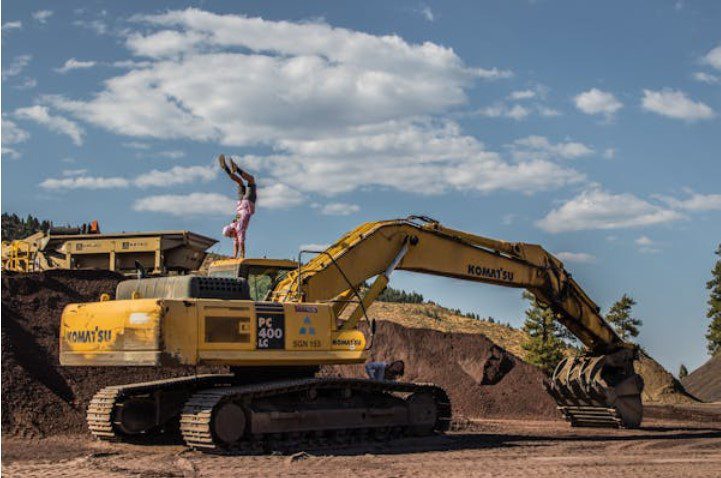Tools and equipment coverage that includes heavy equipment insurance will pay for the replacement or repair of lost or damaged machinery. Both equipment that you own and hire out are covered.
Similar to insurance for tools and equipment, your machinery must frequently fulfill three requirements in order to be covered:
The apparatus has to be movable
A portion of coverage for heavy equipment is similar to inland marine insurance. It offers protection for equipment during land transportation. In other words, it only covers equipment that is mobile, often from your headquarters to the project site.
The apparatus ought to be no older than five years
Insurance for heavy machinery covers repair and replacing expenses in two methods:
The actual cash value, or ACV, is the unit’s purchase price minus depreciation, which represents the equipment’s fair market worth at the period of the loss.
Replacement value of costs (RCV): covers the cost of replacing broken or stolen equipment at current prices.
Policies for heavy equipment frequently include any apparatus that is under five years old. Certain insurance providers provide coverage for the replacement and repair costs of older equipment, but only up to the actual cash worth of the device.
This implies that when your gear ages, the replacement value choice will no longer be an option. However, Click here to get answers on your specific equipment.
The equipment ought to have a value of under $10,000
Usually, insurance for heavy machinery has a $10,000 maximum coverage amount. For the duration of the insurance, this is the highest amount that will be paid.
It is quite likely that your expensive, high-end machinery is not protected. Certain insurers provide coverage for highly expensive equipment; however, this is frequently charged at a premium.
Coverage for heavy machinery is not required by law, just as insurance for tools and equipment is not. However, as a requirement of your contract, your clients could want you to obtain coverage.
What is covered by insurance for heavy equipment?
The majority of insurance contracts for heavy machinery are written with all hazards included. This implies that incidents not expressly included in your insurance contract may be covered. Typically, the following occurrences are covered under heavy equipment coverage:
Natural catastrophes
Losses are covered by heavy equipment insurance, or harm brought on by natural disasters. These consist of lightning, wildfires, hurricanes, and tornadoes. However, earthquakes and floods are not always insured.
You may obtain coverage through riders if your place of business or project is located in a region that is susceptible to these types of occurrences.
Theft
Theft occurring on the job place is covered under policies. They also cover mishaps that take place when the machinery is being moved or kept at a facility.
Vandalism
The price of repairs for vandalism-related damage to your machinery will be covered by heavy equipment machinery. This holds true whether the event happens on the job location or during the transportation of the unit.
Accidental harm
In the event that one of your employees unintentionally breaks or damages equipment, heavy equipment insurance will paywhile carrying out their duties. It could also cover the price of fixing harm brought on by unplanned events like storage problems.
What does a heavy machinery policy not cover?
Not every situation that might result in damage is covered by heavy machinery insurance. Typical exclusions from your coverage include the following:
General deterioration
Natural deterioration-related loss or damage is not covered by policies. Rusting, corrosion, and electrical or mechanical failure are examples of these situations.
Damage done on purpose
Your employees’ intentional damage will not be covered by heavy equipment insurance. Your coverage also excludes repair or replacement expenses in the event that the units are mishandled or destroyed due to carelessness.
Mechanical and electrical failure
It is rare for heavy equipment coverage to include mechanical (https://nvlpubs.nist.gov/nistpubs/Legacy/SP/nbsspecialpublication423.pdf) or electrical failure. At an additional expense, insurers do provide riders with longer coverage. An additional insurance coverage for equipment failure might also assist in paying for the damages.
Stationary apparatus
Machinery that is mobile is the only type of machinery covered by heavy equipment insurance. Boilers, air conditioning units, generators, servers, and other infrastructure-related gear are examples of stationary equipment that is not insured. A policy for equipment breakdown may also assist in covering issues.
Commercial automobiles
Since they aren’t regarded as heavy machinery, the cars your company employs to carry employees and other people aren’t covered. They consist of vans, trucks, and automobiles. You must obtain business vehicle insurance if you wish to be covered for these.
How much does insurance for heavy machinery cost?
It’s challenging to offer heavy equipment insurance at a cost that fits all businesses because different businesses have different needs and exposures, as well as different equipment. You must take into account the following elements in order to determine the cost of your premiums:
- the value of your equipment
- the age of the apparatus
- how you keep your heavy machinery in good working order
- where equipment is kept
- where your company is located
- previous claims made by your company
- the policy’s coverage limitations
Who requires insurance for heavy equipment?
Heavy equipment insurance is beneficial for any company whose activities depend on specialized machinery. Such a policy avoids major setbacks in the event that a piece of equipment is lost or destroyed.

